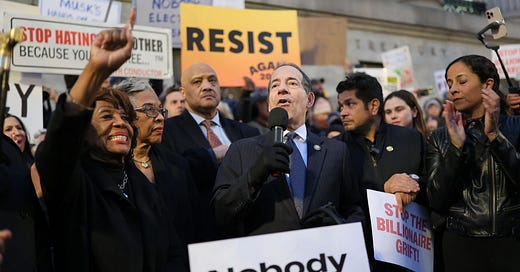An insider speaks out on why legacy media is failing us right now
Trump and Musk are hijacking the state. Why can’t much of the press say so?
Hi, folks. Anand here. I don’t need to tell you that a lot of the legacy press is failing to rise to this moment. But I am a hopeful man. I believe some can learn to do better. Which is why I’m beyond excited to publish this trenchant essay by Brian Montopoli. He is not a media critic but a former media insider. He knows why the punches are pulled. He k…
Keep reading with a 7-day free trial
Subscribe to The.Ink to keep reading this post and get 7 days of free access to the full post archives.







